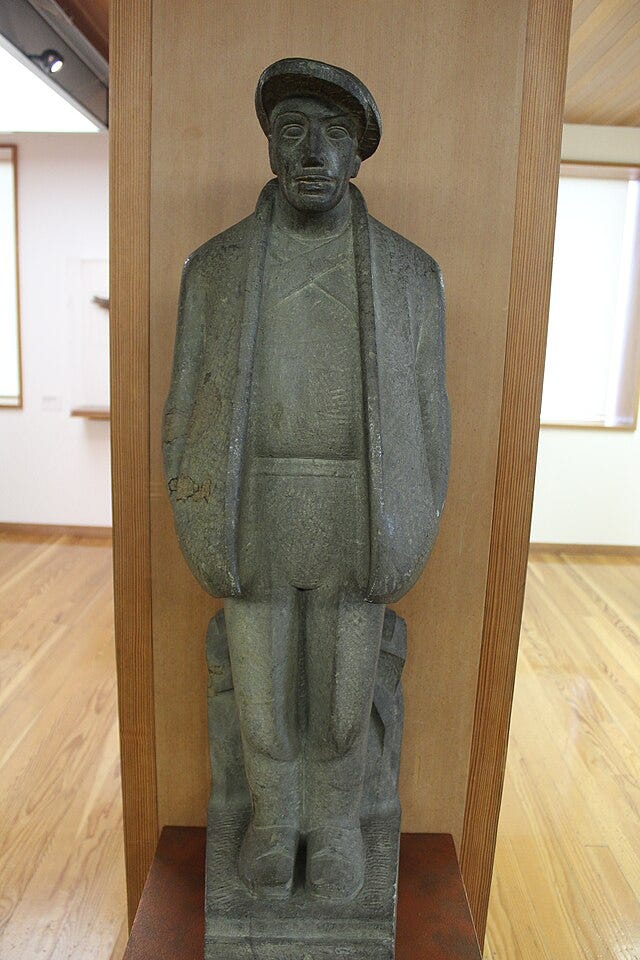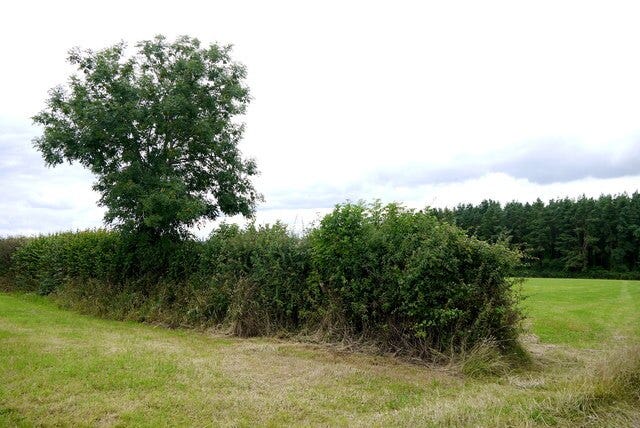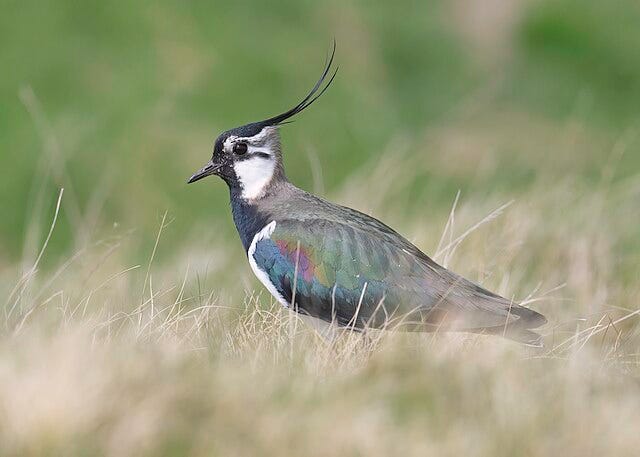Hard Times of Old England
Then: unemployment, hunger, war. Now: farmers' debt, village shops lost to supermarkets, empty holiday homes, and vanishing wildlife
Welcome to new subscribers and regular readers! Thank you for joining me for today’s song, “Hard Times of Old England” sung by Steeleye Span and another version by Billy Bragg. If you’d like to hear the songs before you read about them, I’ve included a couple of YouTube videos below.
Here, you’ll find my interpretation of the lyrics which are written in italics. For Japanese students, vocabulary words in bold are provided in Japanese below. TOEIC (PBT) 450+, Eiken 2, CEFR B1.
Part 1
(399 words)
The song Hard Times of Old England is an old folk song that talks about the ups and downs of money and jobs. Businesses grow and then crash, and big events like wars or natural disasters happen. The war that it sings about could have been a war during the 1700s, a World War, or a more recent one such as the war in Iraq. A worker today could sing this song and feel the same way as workers did 100 years ago. Hard Times is a song that people from many different times in British history can understand and relate to. Yet, it ends on a positive note, singing of hope for better times ahead.
O the hard times of old England
In old England, very hard times
The English is a bit old, but it’s not too challenging. Tradesmen are workers. The song is asking where the jobs have gone.
Come all brother tradesmen, that travel along
O pray (I ask you to) come and tell me, where the trade is all gone
Long time have I traveled, and I cannot find none
And sing O the hard times of old England
In old England, very hard times
You will see the poor tradesmen, a-walking the street
From morning to night, for employment to seek
These workers’s shoes are so old and worn out, it’s as if they have no shoes at all.
And scarce have they got any shoes to their feet
So what's a poor man, and his family to do?
This next verse was not included in the version by Steeleye Span (below).
Our soldiers and sailors have just come from war
Been fighting for their Queen and their country, 'tis (it is) sure
Come home to be starved, better stayed where they were
In other words, they went off to fight in the war, but when they came home, if they couldn’t find a job, they’d have nothing to eat. It would have been better to keep fighting in a war.
And now to conclude, and to finish my song
Let us hope that these hard times, they will not last long
I hope that soon I’ll have the chance to change my song into a happier one.
I hope soon to have occasion to alter my song
And sing O the good times of old England
In old England jolly good times
Vocabulary
disaster 災害
tradesmen 商人
seek 求める
conclude 結論
occasion 機会
alter 変更
Steeleye Span with Francis Rossi
Part 2
(468 words)
The second version is sung by a group called The Imagined Village and Billy Bragg, a British singer, songwriter, musician, and activist.*
Farmers often depend on loans from banks to buy seed, farm tools, and other things they need. Farmers also depend on the ability to sell what they produce so that they can pay back the loans.
For five generations my family have farmed
by horse and by tractor, by hoe and by hand
but that won't stave off the bank's latest demand
Singing oh the hard times of old England
In old England very hard times
People in villages were able to sell the things they grew or made at the local shops. Then, large supermarket chain stores such as Tesco were built, and the people weren’t able to sell as before.
Time was, I could sell what I grew at the shop
Then Tesco's turned up, all of that had to stop
Now I can't make a living out of my crop
…
Here, Bragg sings about the homes in local villages that are being sold to people who come from cities to have a second house in the countryside. They don’t live there, though.
More and more of our village gets sold every day
To folks from the city who are happy to pay
For their holiday cottage to stand empty all day
…
The next verse talks about The Countryside Alliance (CA). It’s a group that helps take care of the countryside in Britain. They care about people who live and work there, like farmers, small business owners. They aim to "Give Rural Britain a voice" and make sure their needs are heard. The song mentions Tony Blair, the Prime Minister (1997-2007). Perhaps the CA wanted everyone to support the UK in its involvement in the Iraq War, but the group didn’t do anything to help the village when they needed it.
The Countryside Alliance expects, I suppose
My support when they're marching to bloody Blair's nose
But they said not a word when our post office closed
…
Companies are developing the natural areas in the UK. Bird like the lap wing and the corn crake are in danger of going extinct. Bragg is worried that he won’t be alive much longer, either.
The hedgerows my grandfather tended have gone,
And with them the lapwing and the corn crake's sad song.
I fear I'll be carried off before long.
And now to conclude and to finish my song
Let's hope that these hard times they will not last long
And I may soon have occasion for to alter my song
Singing oh the good times of old England
In old England very good times
In this version, the final verse is rather ironic rather than a hope for better times ahead. What do you think?
Vocabulary
generation 世代
hoe 鍬
stave off 阻止する
become extinct 絶える
Billy Bragg and The Imagined Village (no lyrics):
Source:
Mainly Norfolk: English folk and other GOOD music. Hard Times of Old England (Roud 1206). https://mainlynorfolk.info/copperfamily/songs/hardtimesofoldengland.html . Accessed 12 June 2025.
Notes:
* The lyrics to an earlier version were written by Roy Bailey, but I’m not sure who, exactly, wrote these lyrics.
Photos:
An Unemployed Man, a stone sculpture by Gordon Herickx in The New Art Gallery Walsall (Photo by 14GTR, Wikimedia Commons)
Hedgerow (Photo: Nigel Mykura, Wikimedia Commons)
Lapwing (Photo: Caroline Legg, Wikimedia Commons)
Corn Crake (Photo: Ron Knight from Seaford, East Sussex, United Kingdom, Wikimedia Commons)
#英検2級 #TOEIC450 #CEFRB1









The Kinks “Get Back In The Line” “All I wanna do is make some money, and bring you home some wine.”